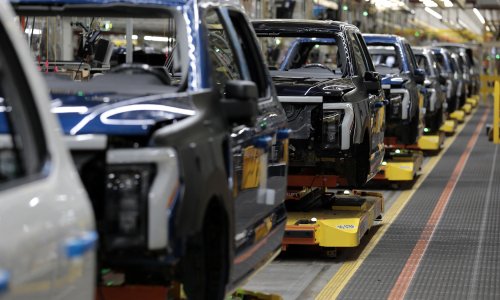The Stakes for U.S. Industry
As the Senate considers the One Big Beautiful Bill Act recently passed by the House, Congress faces critical choices that could reshape the future of U.S. industry, particularly in relation to the Inflation Reduction Act (IRA) and strategic decisions over how to best promote U.S. competitiveness in advanced technologies. The automotive sector is at a crossroads, with the 30D consumer tax credits and the 45X advanced manufacturing production credits at risk of being canceled or significantly curtailed.

The Impact on Electric Vehicle Adoption
The combined effect of these changes would be a 180-degree policy shift for an industry that requires years of planning. Removing consumer tax credits would largely nullify incentives to localize manufacturing and diversify supply chains. Large investments from industry were planned in batteries, automotive manufacturing, and critical mineral mining and refining, assuming long-term policy stability – an assumption now in doubt.
The current approach risks holding back U.S. innovation in the automotive sector. While a short-term slowdown in the EV transition might benefit traditional U.S. automakers struggling to make EVs profitably, it carries long-term risks for the United States. The country risks being left behind as the rest of the world undergoes a revolutionary transformation to electric, connected, and autonomous vehicles.
Global Trends in Electric Vehicle Adoption
The latest data from the International Energy Agency underscores this point: In 2024, EVs accounted for 20 percent of global auto sales. The European Union maintained an average sales rate of 20 percent, while China hit almost 50 percent. In contrast, the United States lags behind, with EV sales at 10 percent and low expectations for growth in the coming years.
Globally, consumers and governments have shown strong interest in EVs due to energy security and efficiency concerns, as well as the synergies between electric drivetrains and digital platforms. A recent global survey found that 92 percent of EV owners would buy another EV, and 97 percent were satisfied or very satisfied with their choice.
The Need for U.S. Leadership
The United States needs to engage and compete in the future of the automotive industry or risk technological isolation. Rather than isolating itself, the U.S. should prioritize policies that localize more of the supply chain and encourage diversified supply chains for critical minerals and components like batteries.
Killing the U.S. EV market and politicizing EVs will not strengthen the United States’ innovation ecosystem; instead, it will likely isolate it from the rest of the world. U.S. companies and research institutions have advanced technology, but they will be unlikely to commercialize it without a domestic market.
The author, Ilaria Mazzocco, is Senior Fellow and Deputy Director of the Trustee Chair in Chinese Business and Economics at the Center for Strategic and International Studies in Washington, D.C.



